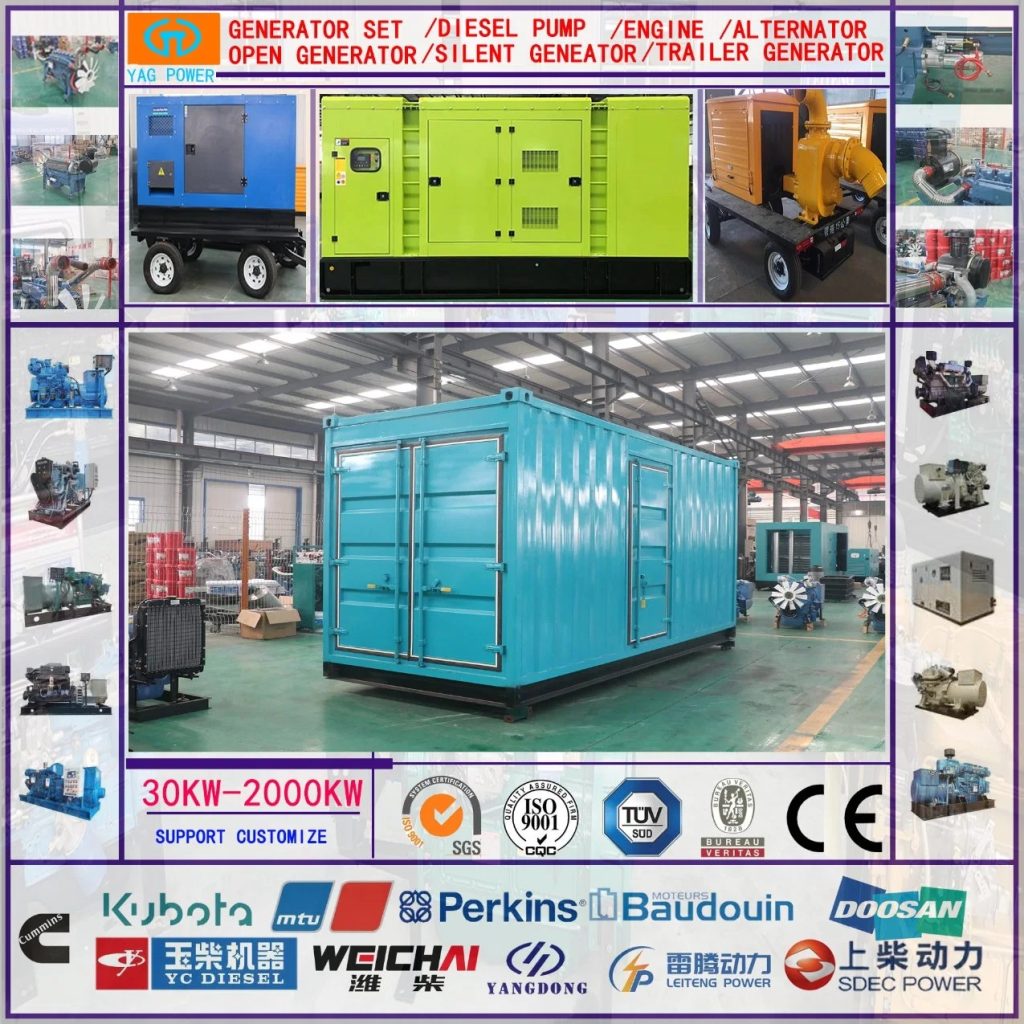Diesel Generators for Prime Power An In-Depth Guide
Introduction Diesel generators have long been a reliable source of power generation for various applications, including prime power. Prime power refers to the continuous operation of a generator to supply electricity to a facility or location without any connection to the grid. In this article, we will explore the use of diesel generators for prime power applications, their benefits, key components, installation considerations, maintenance requirements, and best practices for optimizing their performance. Overview of Diesel Generators for Prime Power Diesel generators are a popular choice for prime power applications due to their robustness, reliability, and fuel efficiency. These generators use a diesel engine to drive an alternator, which converts mechanical energy into electrical energy. The diesel engine burns diesel fuel to produce the mechanical energy needed to turn the alternator and generate electricity. One of the key advantages of diesel generators for prime power is their ability to provide continuous and reliable power supply for extended periods. This makes them ideal for applications where grid power is unavailable or unreliable, such as remote locations, construction sites, mining operations, and critical facilities like hospitals and data centers. Benefits of Using Diesel Generators for Prime Power There are several benefits to using diesel generators for prime power applications: 1. Reliability: Diesel generators are known for their reliability and durability, making them a dependable source of power in critical situations. 2. Fuel Efficiency: Diesel engines are more fuel-efficient than gasoline engines, providing cost savings over the long term. 3. Longevity: Diesel generators have a longer lifespan compared to other types of generators, with proper maintenance and care. 4. Power Output: Diesel generators can deliver high power output, making them suitable for a wide range of applications, from small residential units to large industrial installations. 5. Easy Maintenance: Diesel generators are relatively easy to maintain, with routine servicing and checks ensuring optimal performance. Key Components of a Diesel Generator A diesel generator consists of several key components that work together to generate electricity efficiently. These components include: 1. Diesel Engine: The diesel engine is the heart of the generator, responsible for converting the chemical energy in diesel fuel into mechanical energy. 2. Alternator: The alternator is connected to the diesel engine and converts the mechanical energy produced by the engine into electrical energy. 3. Fuel System: The fuel system supplies diesel fuel to the engine for combustion, ensuring a continuous supply of fuel for power generation. 4. Cooling System: The cooling system helps regulate the temperature of the diesel engine, preventing overheating and ensuring optimal performance. 5. Control Panel: The control panel houses the generator's controls and monitoring systems, allowing users to start, stop, and monitor the generator's operation. 6. Exhaust System: The exhaust system removes combustion gases from the diesel engine and helps reduce noise levels during operation. Installation Considerations for Diesel Generators Proper installation is crucial for the efficient and safe operation of diesel generators in prime power applications. When installing a diesel generator, consider the following factors: 1. Location: Choose a well-ventilated and weather-protected location for the generator to ensure optimal performance and longevity. 2. Fuel Supply: Ensure a reliable and sufficient supply of diesel fuel for the generator to operate continuously without interruptions. 3. 300kw diesel generator for construction equipment : Properly connect the generator to the facility's electrical system to ensure seamless power transfer and distribution. 4. Grounding: Implement proper grounding for the generator to prevent electrical hazards and ensure safety during operation. 5. Ventilation: Provide adequate ventilation for the generator to dissipate heat and exhaust gases, preventing overheating and buildup of fumes. Maintenance Requirements for Diesel Generators Regular maintenance is essential to keep diesel generators in prime power applications operating at peak performance. Some key maintenance requirements for diesel generators include: 1. Routine Inspections: Conduct regular visual inspections of the generator for signs of wear, leaks, or damage. 2. Oil and Filter Changes: Change the engine oil and filters at recommended intervals to ensure proper lubrication and clean engine operation. 3. Fuel System Maintenance: Keep the fuel system clean and free of contaminants to prevent fuel-related issues. 4. Cooling System Checks: Monitor the cooling system for proper coolant levels and perform maintenance as needed to prevent overheating. 5. Battery Maintenance: Check the generator's battery regularly and replace it when necessary to ensure reliable starting. Best Practices for Optimizing Diesel Generator Performance To optimize the performance of diesel generators for prime power applications, consider the following best practices: 1. Load Management: Avoid overloading the generator beyond its rated capacity to prevent damage and ensure efficient operation. 2. Fuel Quality: Use high-quality diesel fuel to prevent fuel-related issues and maintain optimal engine performance. 3. Regular Testing: Conduct regular load tests and maintenance checks to identify potential issues early and address them promptly. 4. Emergency Preparedness: Have a contingency plan in place for power outages or emergencies to ensure continuity of operations. 5. Training and Education: Ensure that operators are trained in proper generator operation and maintenance practices to maximize performance and longevity. Conclusion  Diesel generators are a reliable and efficient choice for prime power applications, providing continuous and dependable power supply in various settings. By understanding the key components, installation considerations, maintenance requirements, and best practices for optimizing performance, users can make the most of diesel generators for their prime power needs. With proper care and attention, diesel generators can serve as a reliable source of power for years to come.
Diesel generators are a reliable and efficient choice for prime power applications, providing continuous and dependable power supply in various settings. By understanding the key components, installation considerations, maintenance requirements, and best practices for optimizing performance, users can make the most of diesel generators for their prime power needs. With proper care and attention, diesel generators can serve as a reliable source of power for years to come.